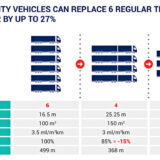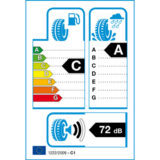
European Parliament adopts new CO2 emission standards for cars and vans
The European Parliament has agreed on CO2 emission standards for new cars and vans in the EU for the period after 2020 – a significant step towards decarbonising and modernizing the European mobility sector, putting the EU on track to become climate neutral.
As a result of the new rules, in 2030, emissions from new cars will have to be 37.5% lower and emissions from new vans 31% lower, compared to 2021.
In a vote on Wednesday in Strasbourg, France, the assembly also fixed an interim CO2-cut goal for autos of 15% for 2025.
The new CO2 standards are part of the clean mobility package and a stepping stone towards a modernised, and more competitive European transport sector, and the road towards a climate-neutral economy in line with the EU’s commitments under the Paris Agreement. The new rules contribute to implementing the Juncker Commission priority of a resilient Energy Union and a forward-looking climate change policy.
“Today’s vote sends a very clear message: mobility and the transport sector has a crucial role to play in Europe’s transition towards a climate-neutral economy. The new targets and incentives will help EU industry embrace innovation towards zero-emission mobility and further strengthen its global leadership in clean vehicles. At the same time, the gradual transition will allow sufficient time for reskilling and upskilling of workers, so that no-one is left behind in this transition. Consumers will save money at the pump, and cleaner cars also mean less pollution and cleaner air for all Europeans,” said Commissioner for Climate Action and Energy Miguel Arias Cañete.
The endorsement removes the final political hurdle for the new emission curbs meant to step up the European fight against climate change. Following this approval by the European Parliament, the Council of Ministers will finalise the formal adoption. This endorsement will be followed by the publication of the texts in the Official Journal of the Union, and the new legislation will enter into force 20 days after publication.
EU governments have already signaled support for the new CO2 limits after striking a deal in December with the 751-seat Parliament, making their final approval due on April 15 a formality.
About 15 million autos are sold each year in the European Union, with cars accounting for more than a tenth of the economic bloc’s releases of CO2, the main greenhouse gas blamed for rising global temperatures. Electric vehicles in Europe have a market share of around 1.5%.
The EU’s current average caps on CO2 from cars are 130 grams a kilometer set for 2015 and 95 grams fixed for 2021.














